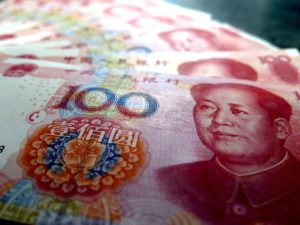For the past several months we have been engaged in many transactions relating to China with companies still doing business in China. These companies recognize both the business opportunities and the business risks. (Those who do not fully understand the risks are still doing their business deals without the help of a lawyer on the front end, which means we usually hear from them when something has gone wrong.)
Our recent deals span a range of industries: biotech, contract manufacturing, marketing management, distribution, direct sales, and media. The majority have focused on business operations in China and selling to the China market. I have had very candid conversations with these clients and have been impressed with their clear understanding of China’s risks.
Still Doing Business in China via E-commerce: Covid and the Disposable Income Boom
One project involved utilizing e-commerce with a U.S. company that had never sold a product to the China market by any means. After reviewing their options, they decided they would try e-commerce for a variety of reasons.
We discussed the e-commerce boom that started with the advent of wide-scale adoption of smartphones in China and accelerated during Covid when Chinese consumers experienced more stringent and extensive lockdowns than any other country in the world. These lockdowns left the general Chinese population with almost nothing else to do but surf the internet and shop.
Much to the chagrin of China’s leadership, the mid-Covid 2021 encouragement that parents have three children instead of two (the one-child policy was removed in 2016) did nothing to shore up the demography crash that China is experiencing, even with the extra free time people had at home during the lockdowns. This demographic drop has a bright side for now: China’s rising middle class will have more disposable income because they are having significantly fewer babies than in the prior decades.
Still Doing Business in China via E-commerce: Biotech Products
One biotech client chose e-commerce as its market entry method because its leadership understood the reality of doing business in China. They know that Chinese consumers are very health conscious. These consumers want quality health products that they can put on or in their bodies. Chinese consumers trust and often prefer Western medicine and its practical applications in biotech devices.
This client understood that its profit window in China would be limited because the product line would likely be reverse-engineered in direct proportion to its market success. This profit window would be even smaller if the company manufactured its medical device in China, so the leadership chose to keep manufacturing in the U.S. They also knew that if they used a Chinese distributor rather than e-commerce as their primary distribution, they would be putting too much brand control into the hands of an untested partner thousands of miles away.
The potential frontrunner e-commerce sites included (from most-visited to least visited): Taobao, Pinduoduo, JD, TMall (owned by Alibaba), and Alibaba. Aside from discrepancies in the number of visits, each of these e-commerce sites has a slightly (or significantly) different focus from its competitors, along with different terms and conditions for its sellers. Once we understood our client’s products and goals, we were able to help them decide which sites would be the best to work with. I wrote “sites” because JD and Alibaba formerly had a mutual exclusivity requirement that no longer exists.
This client also understood that the Chinese are very good at sharing products they like through their personal networks and are likely to do so via social media. China has perfected e-commerce coupled with social media in a way that the U.S. has not.
Direct Sales Companies are Still Doing Business in China
Direct sales companies are interesting creatures, and Utah is ground zero for many of them. These are also referred to as direct-to-consumer or multi-level marketing (MLM) companies. As you can imagine, any type of business structure that has both a strong interpersonal network component and fertile ground for pyramiding or fraud will always be in the CCP’s crosshairs.
Direct sales companies that do not have a billion-dollar market capitalization have zero chance of receiving a direct sales license from the Ministry of Commerce. But creative companies use a multi-entity structure, both inside and outside China, to reduce their overall China risk while maintaining the industry-standard flow-through of both sales credit and commissions for which they were named “multi-level” in the first place.
These companies also use established e-commerce platforms or their own website to book sales and then often use third-party logistics companies to fulfill those orders in China. Usually, these logistics companies are in China, so the company’s inventory is close to its consumer base. Depending on the company’s overall risk profile in China, sometimes the manufacturing and the product warehouses are kept in nearby jurisdictions: Hong Kong, Taiwan, South Korea, and Japan.
For more information on who is still doing business in China, including additional pitfalls and best practices, see:

























